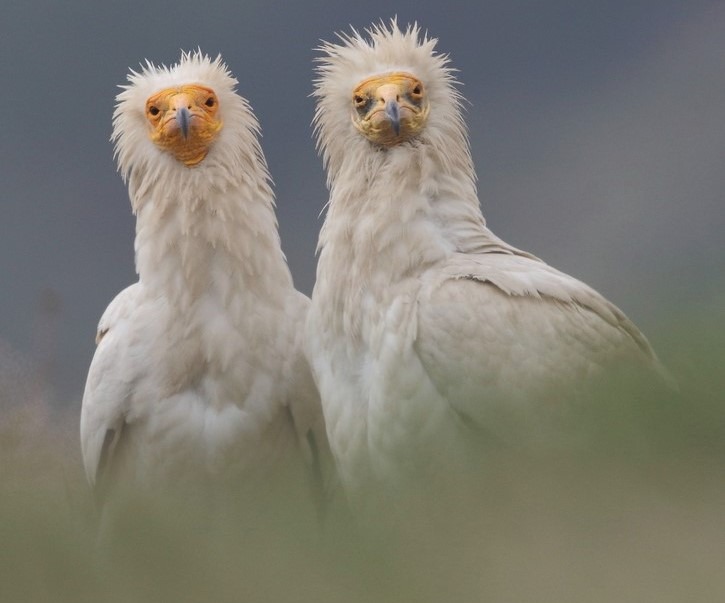Neophron percnopterus

Neophron percnopterus
Non-endemic
Red List Category:
Critically Endangered (CR)
Assessor:Α. Bounas
Photo: Tsaknakis / Click in Nature/ LIFE-IP 4 NATURA.
Egyptian Vulture
Neophron percnopterus
Within Greece the Egyptian Vulture (Neophron percnopterus) has declined by 96.8% the last three generations (53 years) thus qualifying as Critically Endangered (CR) under criterion A2. The species’ range is restricted (<500km2) and the population comprises of less than five locations and shows an observed continuing decline of 91.4% during the last generation thus qualifying as Endangered according to criterion B. The species’ population is small, estimated at 10 mature individuals thus along with the continuing decline in population size and the fact that most individuals are located in one area (Thrace), the species qualifies as Critically Endangered under both criteria C and D. The species suffers from declines along the Balkans so any significant immigration preventing the population’s extinction is not expected. The category is therefore unchanged following the regional adjustment process, and so the Egyptian Vulture is assessed as Critically Endangered (CR) in Greece.
The most important threat for the Egyptian Vulture (Neophron percnopterus) in the country is illegal use of poison baits is, followed by collision with energy infrastructure, especially wind turbines and power lines. The use of non-steroid anti-inflammatory drugs in livestock and lead poisoning are additional threats that can affect the species less intensively


